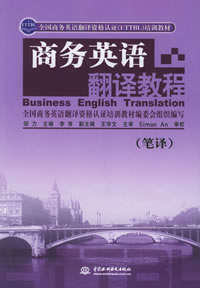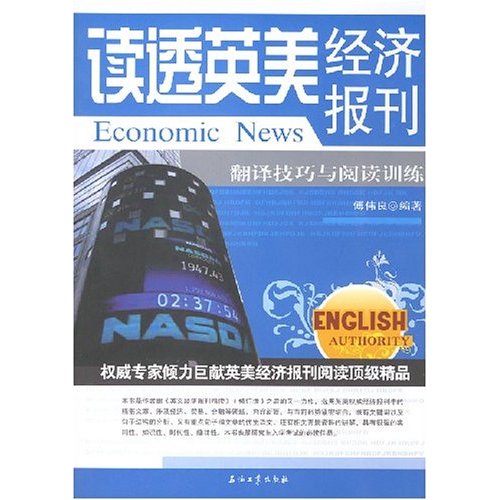直译与意译 (I)
作者:古龙 2009-07-04




语际翻译公司 转载请注明https://www.scientrans.com
∗本栏目部分文章内容来自互联网,部分已经过本站编辑和整理,如有版权事宜请联系Email/MSN jesczhao@hotmail.com
all in all. literal translation is not word-for-word translation. literal translation is acceptable and nimble.
2.3 some sentences should not translate literally.
some source language sentences are very difficult to translate literally. it only though of the meaning of surface, translate it literally, the result is unintelligible and indistinct. some sentences do not accord with expressive way in target language. different country has different culture,different language, different custom and different way to express the same meaning, different language has different way about metaphors, and has different idioms. in china, people usually use some idioms to describe an event or a person. so do in abroad. but chinese idioms are unintelligible in western countries. in these suituations, if translate literally, usually, it would have bad effect and be unacceptable. when target language readers read, they could not know the exact meaning of source language. because the message which target language express was vague.
there are two examples: ⑤
9) our son must go to school. he must break out of the pot that hold us in.
literal translation: 我们的儿子一定得进学校,他一定得打破这个把我们关在里面的罐子.
free translation: 我们的儿子一定要上学,一定要出人头地.
10) their legs mored a little jerkily, like well-made wooden dolls, and they carried pillars of blank fear about them.
literal translation: 他的腿轻轻痉挛地移动着,像做得很好的木偶一样,他们随身携带着黑色的恐怖柱子.
free translation: 他们每向前迈一步,腿就抖动一下,好似精制的木偶一样,他们身上带着一股阴沉的杀气.
from the two examples, literal translation is unintelligible even absurd. but after had translated it freely, translation became cleaner, smooth, acceptable and accord with the culture of target language.
but in which suituation translators should not translate literally? how to use literal translation correctly?
any source language which does not accord with the expressive way of target language should not use literal translation. for example: in example 9), "break out the pot that hole us in", it is an english idiom, it means do something successful. but how to translate it into chines?there is also an idiom in china. it almost has the same meaning as"break out of the pot that hold us in". it is "出人头地". so when translating that sentence translators should not use literal translation, translators should use free translation.
and how to use literal translation correctly? first, know source language and target language culture as much as possible and translators should have extensive knowledge with the problems which the original wrote or talk about, translators should be conversant. we often have experience like that: because lake of some knowledge that somebody talking about, even after others explained, we still did not know or understand. so before translators translating some materials, especially some proffessional materials translators must grasp some knowledge about the materials. for example, if translate some materials about economy,translators should know some knowledge about economy; if translate some material about news, translators should know some knowledge about news;if translate some professional materials,translators should know some knowledge about that proffession, or be an export of that proffession. if translator was a man who did not know something about the material which he wanted to translate, his translation would be unqualified. second, comprehend source language message correctly and thoroughly. it is very important. translators should not only know the surface meaning of the original and translators should read through the surface, know what does the original want to express. if a translator does only know surface meaning of the original and translate it literally, his translation would be correspondingly. after target language reader read his translation, they would be confuse and have different feeling between the original and the translation or even have erroneous comprehension.
translation is different from reading. when we reading, it no matter how much we understand or can be understand or have erroneous comprehension. because level of the readers is limited. reading is only a feeling of himself. but translation affects others. instead of the original author, translat
- 评论
- seme:文章内容文章内容文章内容文章内容文章内容文章内容文章内容文章内容文章内容 章内容文章内容文章内容文章内容文章内容
- seme:文章内容文章内容文章内容文章内容文章内容文章内容文章内容文章内容文章内容 章内容文章内容文章内容文章内容文章内容

- 英汉翻译中的直译与意译
2009-6-19 18:40:04 - 翻译是一门艺术,是一门带有刨造性、科学性的艺术。清代末期翻译家严复。在《天演论》的《译例言》中说:“译事三难、信、达、雅”如何达到“信、达、雅”大体说来有两种方法,...
- 英汉翻译中的陷阱
2009-6-19 10:32:38 - 英语中有些表达方法仿佛很容易理解,但翻译起来特别容易出错.我们一定要小心这些陷阱.例如下例: ...
- 第四届IEEE生物信息与生…
2009-6-30 19:42:01 - 基本信息 主办单位: 四川大学,IEEE生物医学工程协会(EMBS) 承办单位 开始日期 2010/06/18 结束日期 截稿日期 2009/1...
- 第九届全国光电技术学术…
2009-6-30 19:35:58 - 基本信息主办单位: 中国宇航学会光电技术专业委员会承办单位 开始日期 2009/11/01结束日期 截稿日期 2009...
















